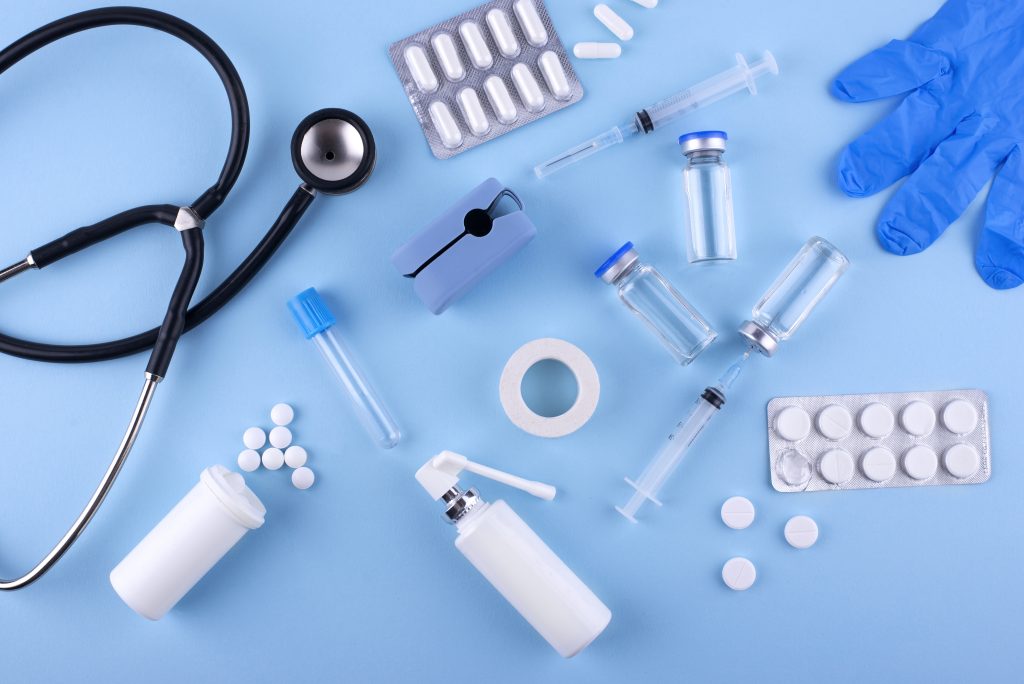
Insights
Clean Pharmaceutical Supply Chain with Full Traceability
Counterfeit and substandard pharmaceuticals threaten the health of millions around the world. The World Health Organization (WHO) defines them as products that do not meet quality standards and specifications due to poor manufacturing or inadequate quality control. According to the agency, at least 1 in 10 medicines in low- and middle-income countries are substandard or falsified. As the WHO emphasizes the negative impact of counterfeit and substandard drugs on public health, relevant stakeholders must build clean and transparent pharmaceutical supply chains.
A clean pharmaceutical supply chain refers a supply chain ensuring safe, ethical, transparent, and sustainable flow of medical products from raw material sourcing to patient delivery. Cleanliness in pharmaceutical supply chains mainly underscores integrity and compliance along with the minimal risk of contamination and unethical practices.
In this blog, we focus on the importance of cleanliness and traceability in pharmaceutical supply chains and our award-winning Pharmaceutical Track & Trace System, DrugXafe.

What are Key Challenges in Today’s Pharmaceutical Supply Chain?
Pharmaceutical supply chain challenges affect patient access to essential medicines and safety of drugs. Defining these issues effectively is the foundational step toward the implementation of appropriate solutions.
Counterfeiting and Security Risks
Among these challenges, counterfeiting is the biggest threat to human life. Counterfeit and substandard drugs endanger patients while damaging brand trust for manufacturers. According to the U.S. Food and Drug Administration (FDA), these drugs can involve wrong and harmful ingredients or no active ingredient. Because of their poor quality, they may lead to ineffective treatment and, in severe cases, life-threatening health outcomes.
A lot of counterfeit incidents are reported in the pharma industry. For instance, a 2025 article published on the npj Vaccines reports that 2,500 people were mistakenly injected with saline instead of the genuine COVID-19 vaccine during the pandemic.
Without strong serialization, packaging security, and end-to-end verification, counterfeit and substandard drugs enter the supply chain. To protect patients and maintain trust, stakeholders must adopt suitable serialization and tech-driven traceability.

Overstocking and Understocking
Pharmaceutical supply chains are very sensitive because medical products have limited shelf life. Overstocking can cause wastage while understocking might result in shortages.
For example, some regions encounter vaccine or drug shortages during flu seasons. On the other hand, other regions discard millions of expired products, highlighting inefficiencies in supply chain management. The imbalance results in financial loss and health risks; stockouts can delay treatment for life-threatening conditions, and expired drugs increase waste management burdens.

Lack of Real-Time Visibility
Many pharmaceutical supply chains still rely on outdated enterprise resource planning (ERP) systems or fragmented manual reporting. This makes it difficult to know where pharmaceuticals are at any given time.
Without visibility, stakeholders cannot respond quickly to various issues like demand fluctuations and logistic delays. Meanwhile, real-time visibility eliminates inefficiency and poor crisis response, contributing to effective pharmaceutical supply chain management.

Maintaining Regulatory Compliance
Pharmaceutical companies must comply with strict Good Manufacturing and Distribution Practices (GMP/GDP), guidelines by the FDA and the European Medicines Agency (EMA), and country-specific rules. Even minor errors can cause drug recall, heavy fines, or even shutdown of facilities.
As a legal requirement, compliance protects personal health and ensures continued market access. With proper quality control, companies can prevent supply chain disruptions, damaged reputation, and high costs.
Why Does Traceability Matter in Pharmaceutical Supply Chain?
The question of ‘‘How to improve pharmaceutical supply chain?’’ points to traceability. In drug supply chains, traceability means the ability to track and trace pharmaceutical products’ entire journey, from the sourcing of raw materials to distribution to patients. Tracking is following a product as it moves through the supply chain while tracing is looking back to find the origin and history of a product.
Drug traceability is like a digital passport for every medicine. The importance of traceability in supply chain is undeniable. Here is why this concept is critical in pharmaceutical supply chain optimization:
- Patienty Safety: Traceability helps detect and eliminate counterfeit or substandard drugs. Also, it enables fast identification and recall of affected batches, minimizing health risks. Moreover, it supports the verification of medicines and ensures patients receive genuine, properly stored, and safe drugs.
- Regulatory Compliance: For full visibility and cleanliness, governments and regulators like the FDA and EMA require serialization, and track and trace regulations for the pharmaceutical supply chain. Furthermore, compliance with pharma standards is only possible with robust traceability.
- Fraud and Theft Prevention: Pharmaceutical products are high-value targets, and serialization and traceability protect them. Thanks to traceability, these products cannot be stolen easily, and falsified medicines are effectively prevented from entering the supply chain.
- Trust: Traceability builds confidence among patients, healthcare providers, and regulators. Strong traceability systems consolidate reliability and uphold ethics.

How Does Tiga’s DrugXafe Build Clean and Traceable Pharmaceutical Supply Chain?
For Tiga Healthcare Technologies, traceability in pharma is not just monitoring drugs, it reflects the protection of each patient as well as public health. For this reason, we developed our Pharmaceutical Track & Trace System, namely DrugXafe, and its mobile version, DrugXafe Mobile App.
DrugXafe tracks and traces serialized pharmaceuticals with 2D Data Matrix for a transparent and safe drug supply chain. This system records every movement of a drug from the manufacturer/importer to the end user. By creating a clean chain of custody, it prevents counterfeit and substandard medicines from entering circulation. Moreover, it ensures that expired medicines cannot be sold in the market, while supporting rapid and targeted drug recalls.
As a patient-centric digital health solution, DrugXafe Mobile App allows users to quickly access essential information by scanning the 2D Data Matrix on drug packages. This app enables verification of drug authenticity, expiration date, recall status, and approval information. Also, users can report adverse reactions experienced from medications, find nearby pharmacies with available stock, and check current drug prices. Through DrugXafe Mobile App, we make the national pharmaceutical ecosystem more transparent and user-friendly.

Conclusion
For patient safety and effective public health management, countries require a robust drug traceability solution. Relevant stakeholders such as manufacturers, pharmacies, exporters, warehouses, hospitals, and reimbursement institutions monitor every stage of a medicine’s journey via digital technologies like DrugXafe. These technologies provide end-to-end visibility, real-time monitoring, and efficient recall management, helping achieve fully traceable and clean pharmaceutical supply chains.
Let’s shape the future together through digital drug track and trace solutions!








